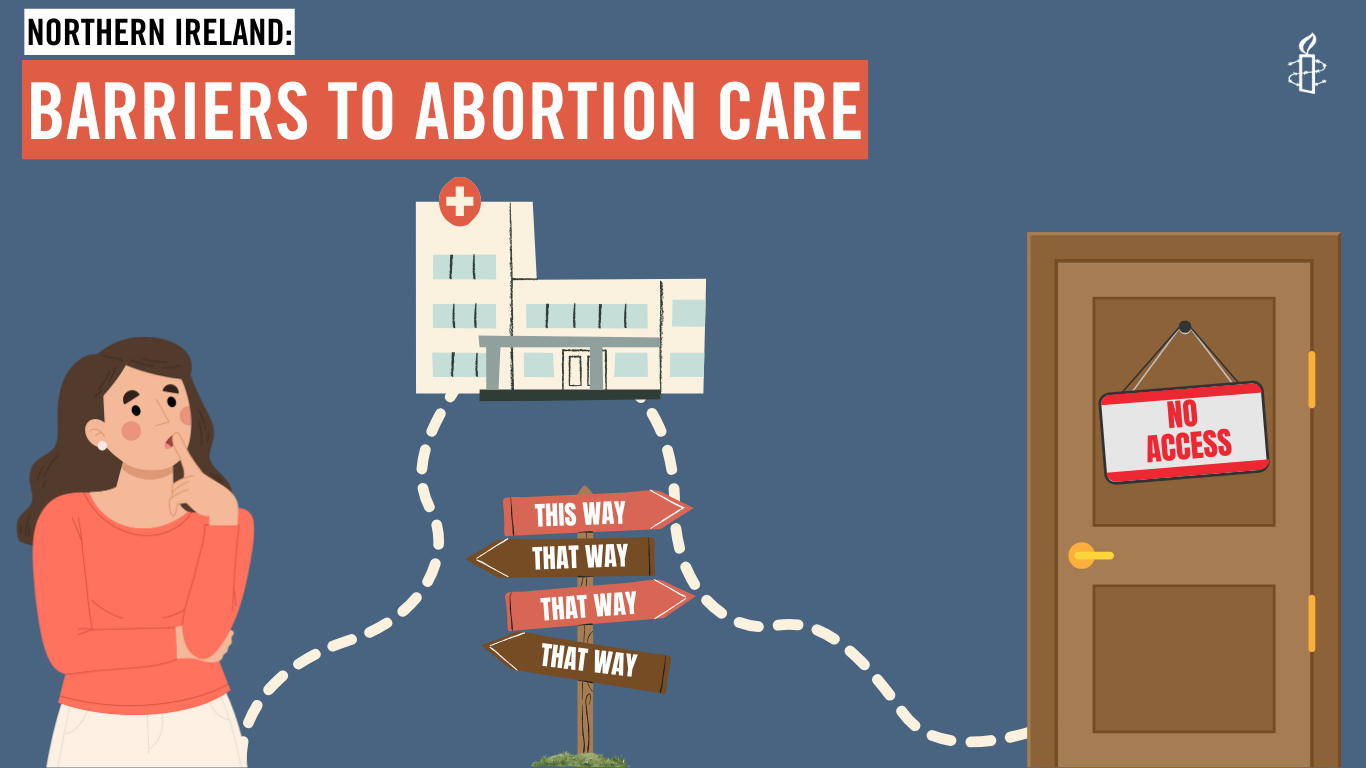Four years ago, decriminalisation of abortion in Northern Ireland was achieved. Yet people seeking abortion care are facing multiple barriers.
The rights and choices of women, girls, and people who can become pregnant must be respected and protected - not only in law, but in practice. Delays in access to full service provision are unacceptable and cause harm every day.
Women and girls continuing to board a plane to England to for abortion care should be a thing of the past. Full abortion provision must be established without further delay.
What’s gone wrong?
A person seeking abortion may face barriers at every step. Our new report Legal but not local: Barriers to accessing abortion services in Northern Ireland, lays bare the failures and wide-ranging obstacles facing access to this essential healthcare.
Here are some of the failures and wide-ranging obstacles facing access to this essential healthcare.
1. Lack of trustworthy information
Awareness about the abortion law remains shockingly low. It took until December 2022 - over 3 years since the law had changed - for information to be provided on Northern Ireland’s public services website. Even now, the information is unclear and incomplete.
To date, the government has not run a public information campaign, leaving women in the dark.
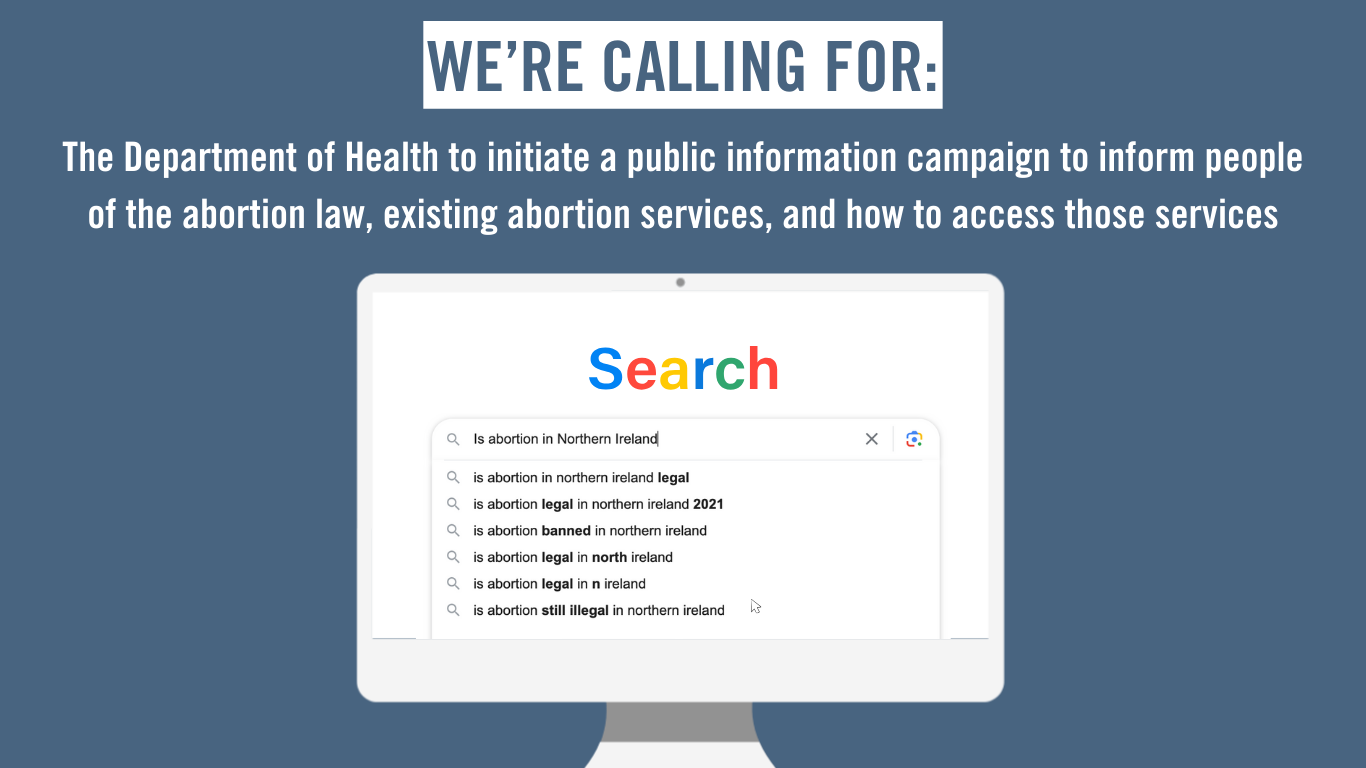
2. Healthcare not provided
Where they exist, abortion services are fragile, stretched thin and severely understaffed. Many of the services could not be sustained if a provider in charge was on leave.
Seeking an abortion is time-sensitive. If abortion care is unavailable for a week or two, women and pregnant people may miss the window in which abortion services are currently available in Northern Ireland.
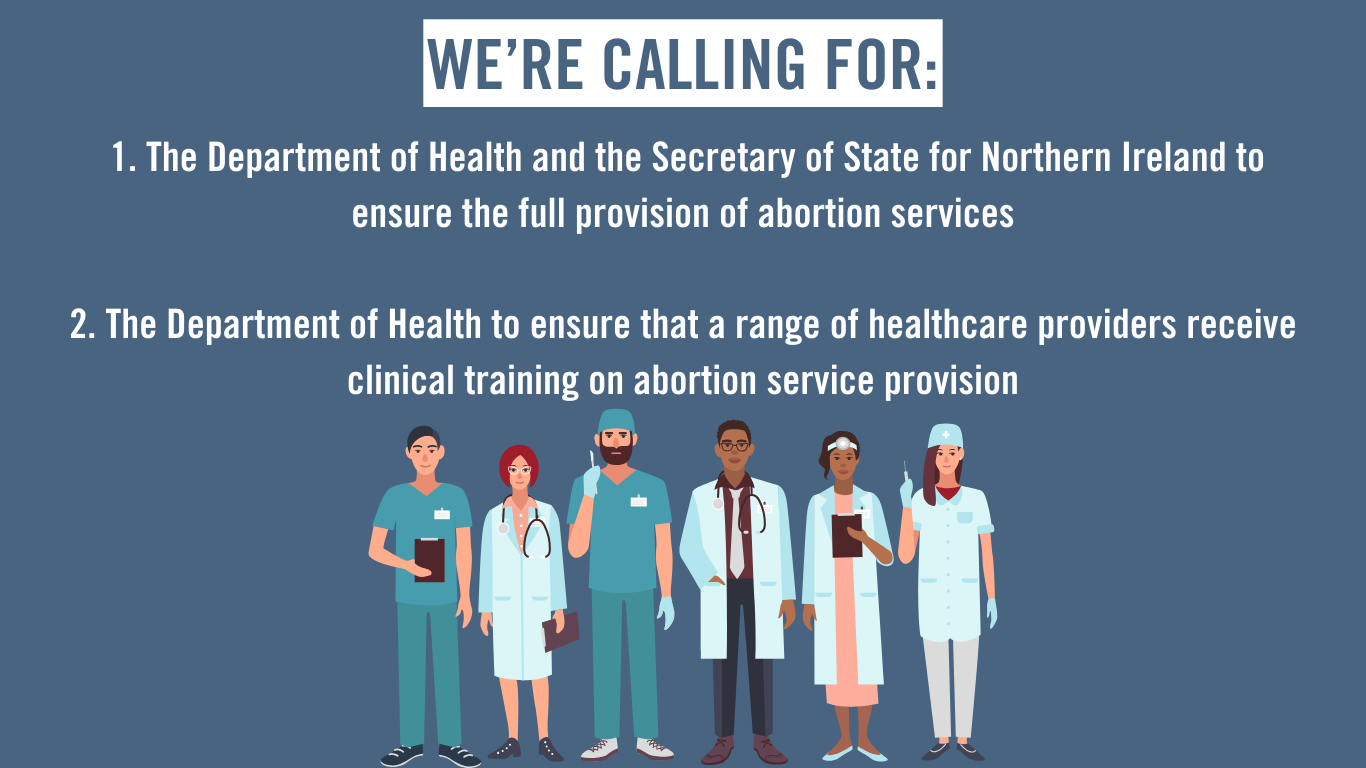
3. Provider refusal
Some healthcare staff - including administrators and an interpreter - have refused to enable access to abortion care, even though they have no legal right to refuse.
In almost every interview Amnesty held with healthcare providers and those working to support people to access services, misinformation about the legal scope of provider refusal (also sometimes referred to “conscience-based refusal”) has been raised as a barrier to establishing and accessing abortion services.
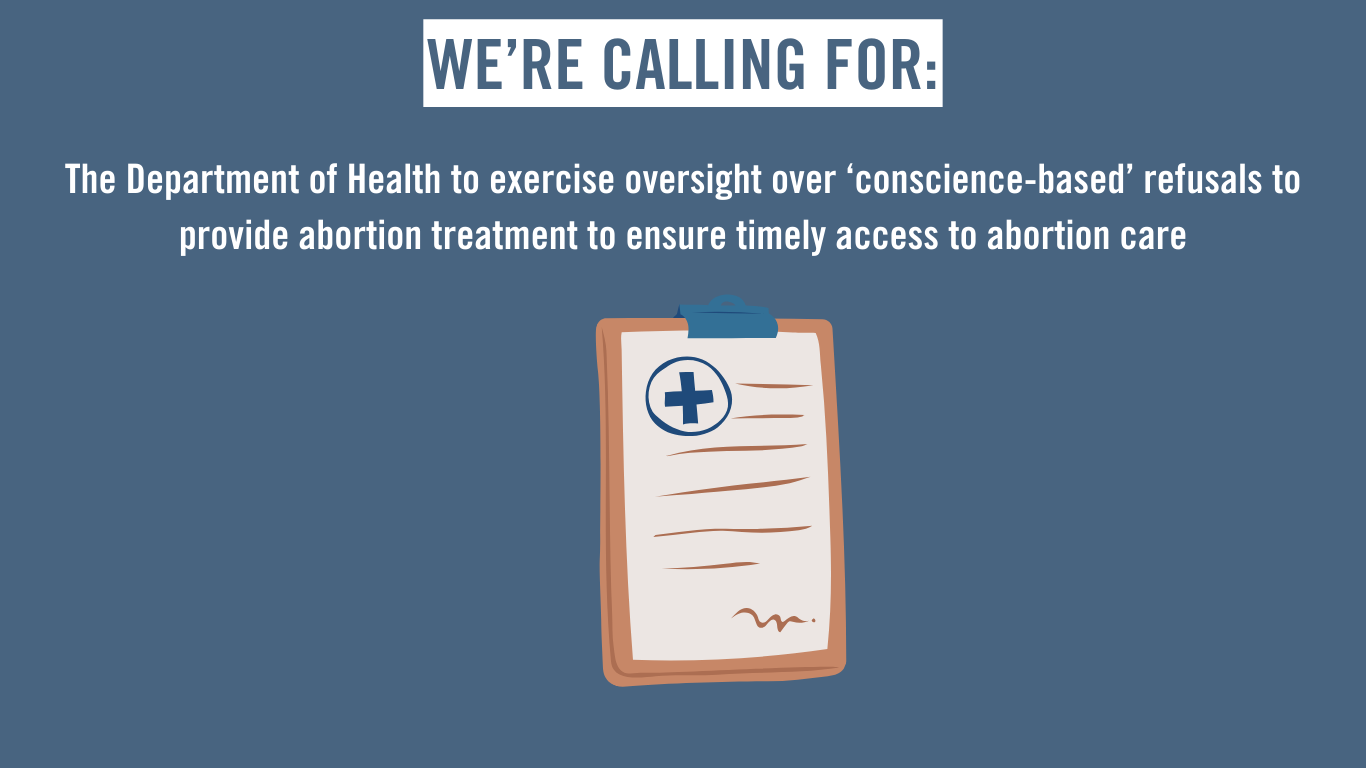
4. Stigma and discrimination
Stigma is still prevalent for those who seek, provide and support access to abortion care in Northern Ireland.
Methods of intimidation include verbal intimidation and physically threatening behaviour, trolling, and threats by text messages.
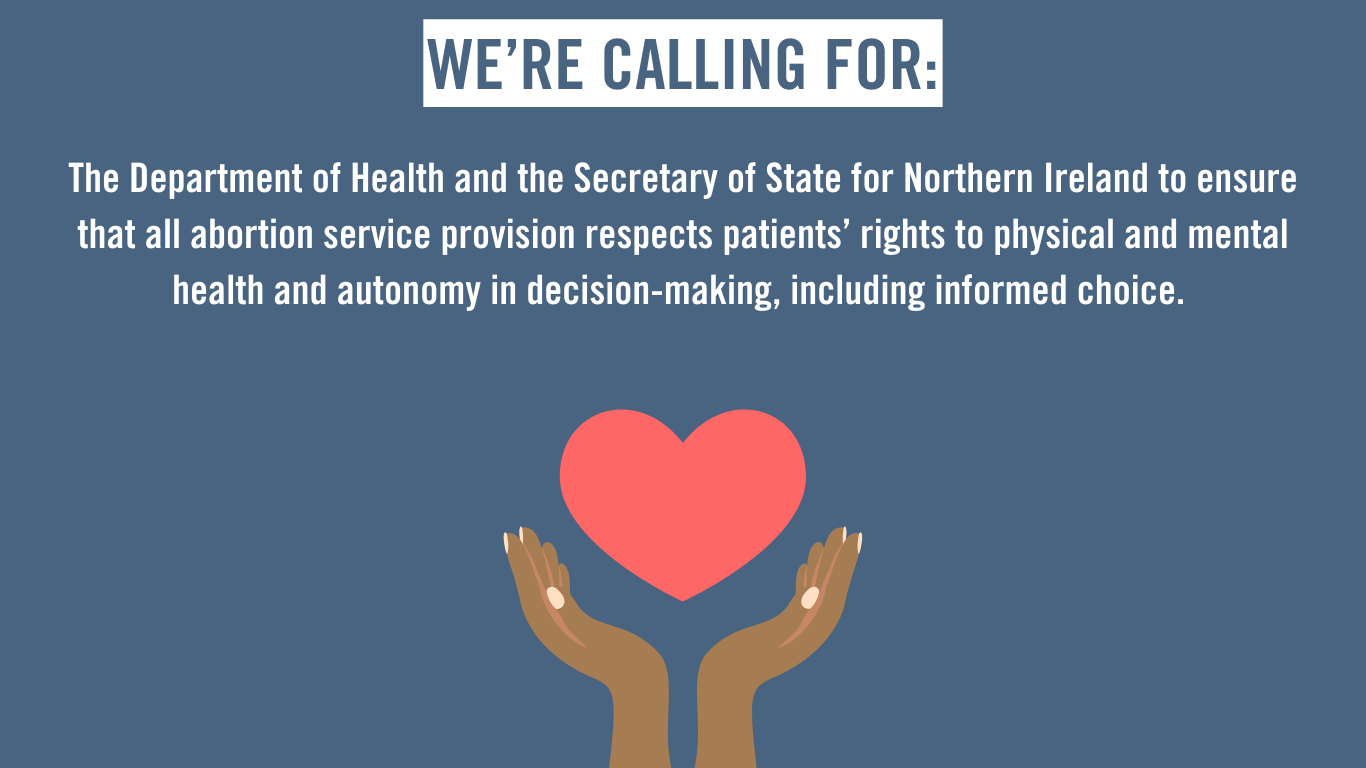
5. Lack of self-care options (AKA ‘telemedicine')
Lack of access to telemedicine in Northern Ireland particularly impacts people who:
- have no access to transport
- are in abusive relationships
- have certain health conditions
- are concerned about confidentiality
- have insecure employment
- fear intimidation
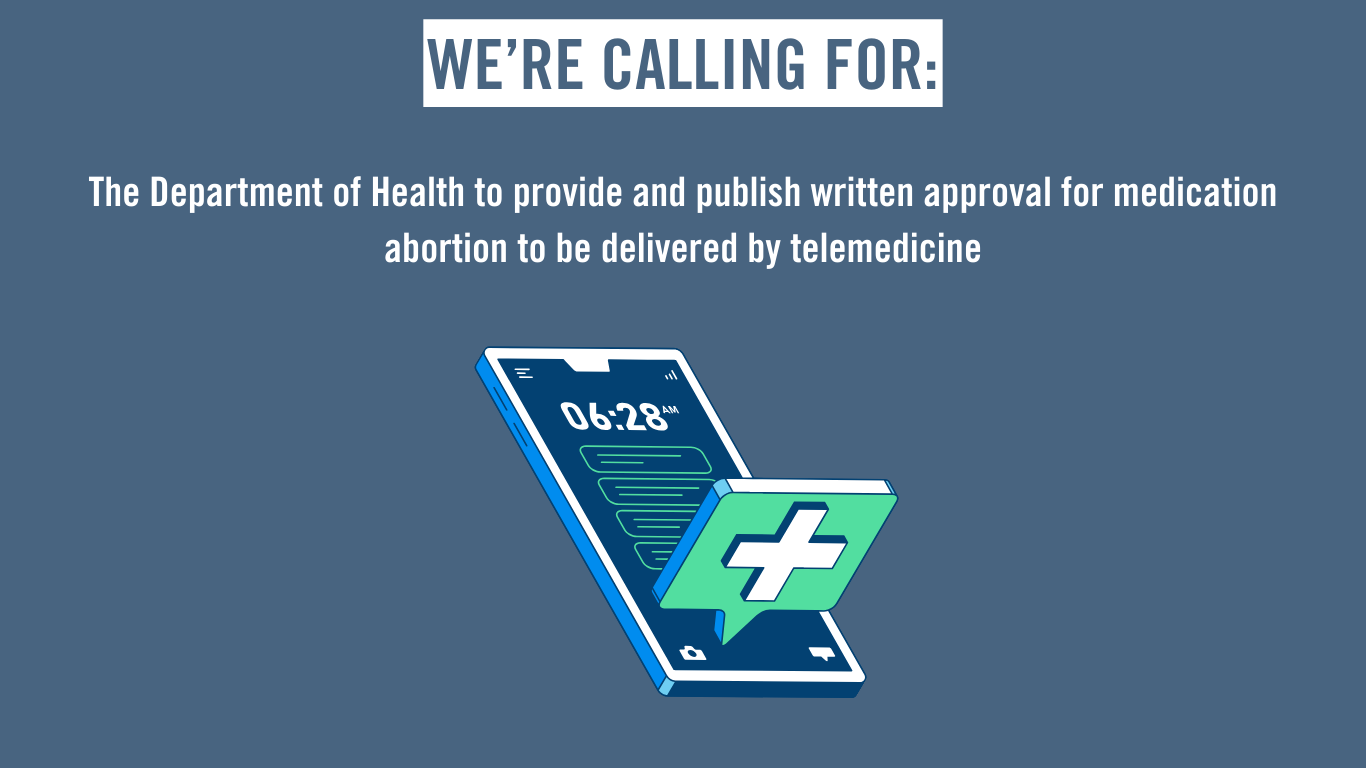
The lack of access to abortion care in Northern Ireland is deeply concernning. Choice must mean choice - in practice and not just on paper.
Northern Ireland and UK authorities MUST improve access to abortion services.
